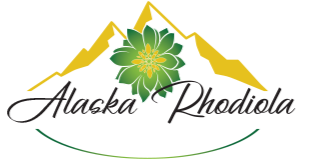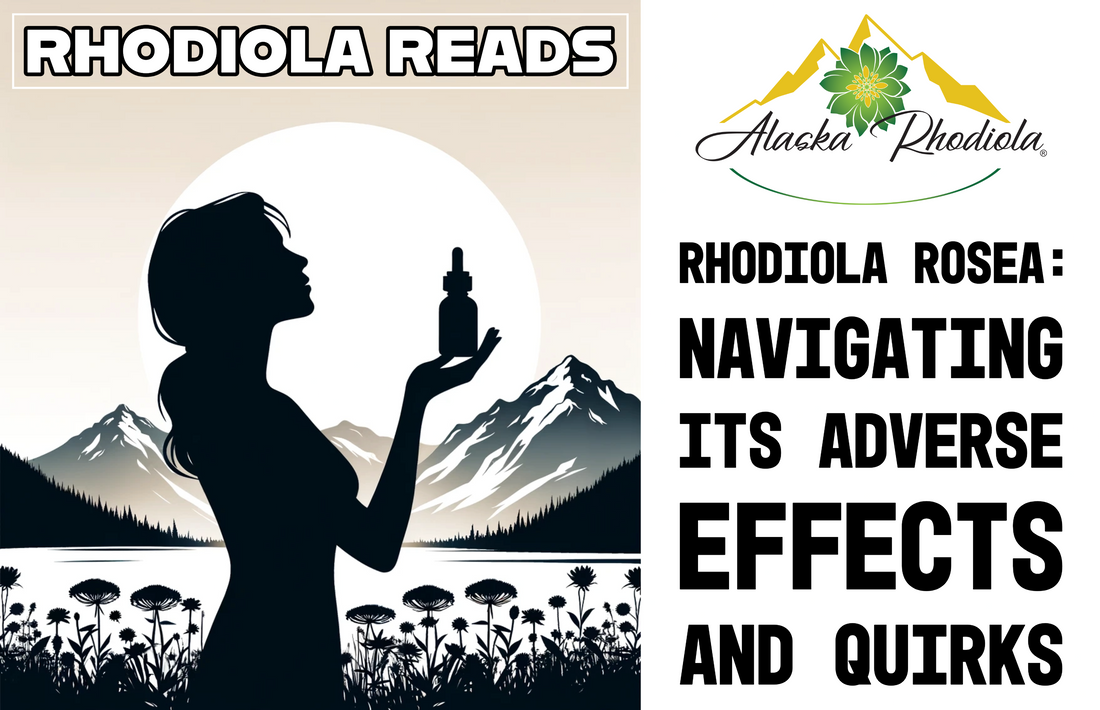Rhodiola Rosea, also known as golden root or Arctic root, has been praised for centuries across various cultures for its adaptogenic properties. Promising reduced stress, enhanced mood, and improved cognition, this herbal supplement is omnipresent in the wellness circuit. However, like every beneficial substance, we should also recognize and talk about possible undesired effects of the plant we all love.
Who Should Approach Rhodiola Rosea with Caution?
While for many, Rhodiola Rosea is a beacon of health and vitality, for some it must be used with caution. It's imperative to understand that Rhodiola Rosea is not a one-size-fits-all supplement. If you fall into one of the following categories, it might be wise to consult a healthcare professional before adding this herb to your daily regimen:
Individuals with Anxiety Disorders
Rhodiola Rosea's modulatory effects on the central nervous system can mean a world of difference to those grappling with everyday stress. However, for individuals with anxiety disorders, particularly generalized anxiety disorder (GAD), panic disorder, and social anxiety disorder (SAD), taking this supplement may exacerbate existing symptoms.
High Blood Pressure Patients
Several studies have suggested that Rhodiola Rosea may influence blood pressure levels. While at moderate doses, it may not cause significant fluctuations, higher quantities might lead to a spike in blood pressure, which is concerning for hypertensive individuals.
Pregnant and Breastfeeding Women
The effects of Rhodiola Rosea on pregnancy and lactation have not been extensively studied. Consequently, there is a lack of scientific consensus on its safety for these periods. To err on the side of caution, experts generally advise pregnant and breastfeeding women against using Rhodiola Rosea.
Autoimmune Disorders Sufferers
Rigorous research regarding the effects of Rhodiola Rosea on autoimmune conditions like rheumatoid arthritis, lupus, and multiple sclerosis is sparse. Since Rhodiola Rosea has
immunostimulating properties, it could potentially worsen symptoms for individuals with such disorders.
The Beneficiaries: Who’s Prime for Rhodiola Rosea?
In contrast, certain groups may find Rhodiola Rosea to be particularly advantageous. Its herbaceous superpowers can offer substantial support to individuals across various spectrums of health:
The Fatigue Fighters
For those plagued by chronic fatigue or the regular afternoon slump, Rhodiola Rosea can be a resourceful ally. Its adaptogenic qualities not only enhance physical performance but also kickstart mental clarity, making it a perfect pick-me-up for when your energy levels are running low.
Mental Health Maintenance Seekers
In the realm of mental health, Rhodiola Rosea is a beacon of hope for individuals dealing with mild to moderate depression. Its action in increasing dopamine and serotonin levels, coupled with its ability to modulate stress hormones, can provide relief and help lift the mood.
The Focus and Endurance Chasers
Students, athletes, and anyone looking to boost focus and endurance during their mental or physical exertions can turn to Rhodiola Rosea. By promoting alertness and staving off exhaustion, it aids in sustaining performance levels over extended periods.
Seasonal Blues Warriors
As an effective supplement for Seasonal Affective Disorder (SAD), Rhodiola Rosea's ability to combat symptoms of depression, combined with the fact that it doesn't typically cause the weight gain or sexual dysfunction seen with other medications, has made it an attractive natural solution.
The Paradox of Dosing: Understanding Rhodiola’s Range
One of the most peculiar aspects of Rhodiola Rosea is its paradoxical dynamics regarding dosage. At low doses, typically ranging from 200 mg to 600 mg, the herb can have stimulant properties, while at doses exceeding 1,500 mg, it often manifests more calming effects. This wide range of efficacy not only highlights the herb's versatility but also brings to light the importance of carefully controlling intake.
Low Doses: Energy Booster and Cognitive Enhancer
Low doses can turn the wheels for an energy-starved individual. As an adrenergic system booster, it raises the levels of norepinephrine in the brain, which can translate to increased alertness, better mood, and enhanced concentration.
Moderate to High Doses:
When the dose inches up, so do the effects, veering towards a more sedative state. This can be especially beneficial for those seeking relief from anxiety and insomnia. However, it is crucial to note that while these higher doses can offer tranquility, they may also induce a state of drowsiness for some individuals, which is not always conducive to daily function.
Rhodiola Rosea: The Bottom Line
Rhodiola Rosea is undoubtedly a star player in the natural supplement arena, offering an array of health benefits. Still, it's essential to acknowledge that one size aka dosage does not fit all, particularly regarding its varied effects on different individuals and its unique dosing dynamics.
For potential users, the guiding principle should always be caution and conversation with a healthcare provider when considering the addition of any new supplement to their routine. By staying informed about the complexities of Rhodiola Rosea, individuals can make well-informed decisions that could lead to a more harmonious integration into their health journey.
Adopting a sensible approach by starting with low doses, monitoring personal reactions closely, and heeding the caveats for specific health conditions, one can harness the intrinsic potential of Rhodiola Rosea while minimizing the risks. Remember, wellness is a symphony of elements, and sometimes, a single golden root can hold both the high notes of vitality and the restful undertones of balance.
References
Konstantinos, Fanaras and Heun, Reinhard. "The effects of Rhodiola Rosea supplementation on depression, anxiety and mood – A Systematic Review" Global Psychiatry, vol.3, no.1, 2020, pp.72-82.


2 comments
I family member of mine was diagnosed with early onset Alzheimer’s. The disease has rapidly progressed since diagnosis a couple years ago. Non of the prescribed medications have helped/ had rough side effects, so we are taking a more natural approach. Ive read so much about Rhodiola and the benefits associated with Alzheimer’s Disease. Is it possible for it help slow down the rapid progression of the disease to hopefully contribute to increased quality and quantity of life?